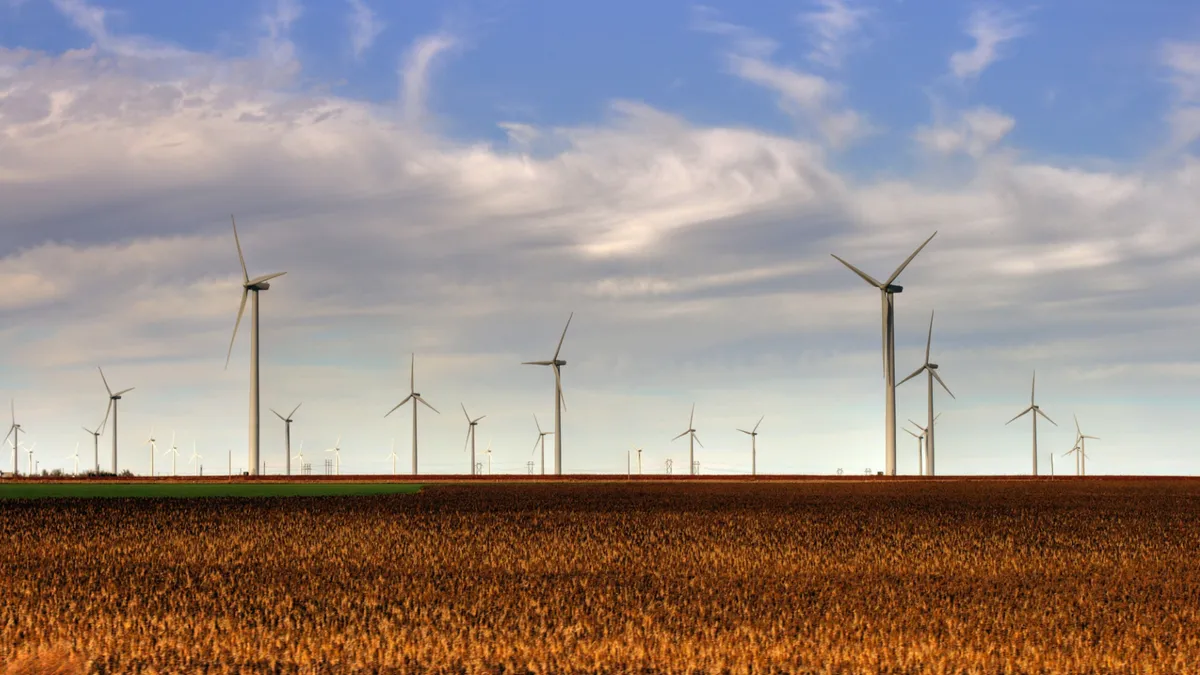Dive Brief:
-
Global companies, including Google and Microsoft, announced on Wednesday their support for a world-wide collaboration to improve transparency regarding how often their electricity is generated through renewable energy. More than 100 companies are pursuing goals for their energy consumption of around-the-clock clean energy.
-
The U.K.-based EnergyTag is developing a framework to shift grid generation information to a more granular, hourly standard, and ensure companies aiming to get their electricity from zero emissions power sources are not operating in markets running off fossil fuels when intermittent resources such as wind and solar aren't generating at full capacity. The independent membership organization published a report on its framework for verifying "hourly certificates" for clean energy.
-
EnergyTag is testing the granular emissions data through six projects that began in the first half of 2021 and running into 2022. One of the demonstration projects includes North America's Midwest Renewable Energy Tracking System (M-RETS) initiative, integrating hourly generation data in Midwest markets into decisions on renewable energy certificates (RECs).
Dive Insight:
The rapid growth of corporate procurement in the United States, coupled with cost declines for renewable energy, have led to a growth in RECs. However, critics of 100% clean energy goals have noted that corporations touting their progress on decarbonization have overlooked the intermittency of renewable energy, and downplayed their continued reliance on fossil fuels in regional markets.
The global initiative would show where renewable energy and additional resources such as geothermal energy and battery storage would need to be sited in order to decarbonize regional grids on an hourly basis, specifically when wind resources are weaker and the sun is out of sight.
Other EnergyTag programs involve European markets and an Australian project, with additional tracking being developed for 24/7 data by the global nonprofit Energy Web Foundation.
The Renewable Energy Buyers Alliance (REBA) has been tracking this trend from earlier corporate procurement practices, which depended on cheaper price points for renewable energy.
"We're seeing increasing interest and demand in incorporating what we at REBA call next-generation procurement practices, that allow buyers to truly consume carbon-free energy, allow them to achieve greater emissions impact and ultimately drive technology development," Laura Vendetta, REBA's manager of policy innovations, said.
Participants of the EnergyTag initiative include Google, which published a white paper in September on its pursuit of 24/7 clean energy in all of the regional markets where it operates. Google announced in March a partnership with M-RETS, a Minnesota-based renewable energy tracking platform that facilitates hourly RECs.
"EnergyTag's work will allow both mature and developing renewable energy markets to achieve their decarbonization goals while reducing the costs to participate in local, regional, national, and international renewable energy markets," Ben Gerber, president and CEO of M-RETS, said in a statement.
Google — which has previously stated plans to pursue 24/7 clean energy and to unlock pathways for other companies to similarly prioritize decarbonization — has data centers throughout the U.S. and across the globe. While working with M-RETS to better improve the visibility into operations in the Midwest Independent System Operator and other regional grids, the tech company is shifting work through "carbon-aware" computing, to make sure tasks that can be done in a number of Google's data centers are using power from the most clean grid available.
Google will first apply this to its media processing efforts, such as encoding, analyzing and processing multimedia files uploaded to Google's products, including YouTube, according to an announcement on Tuesday.
Day-ahead predictions for grid emissions through Google's platform would shift computing to the regions where more clean energy is powering the grid, providing privacy laws allow it.
Other members of EnergyTag's initiative include global companies like Microsoft, PwC, and the French utility Engie.














